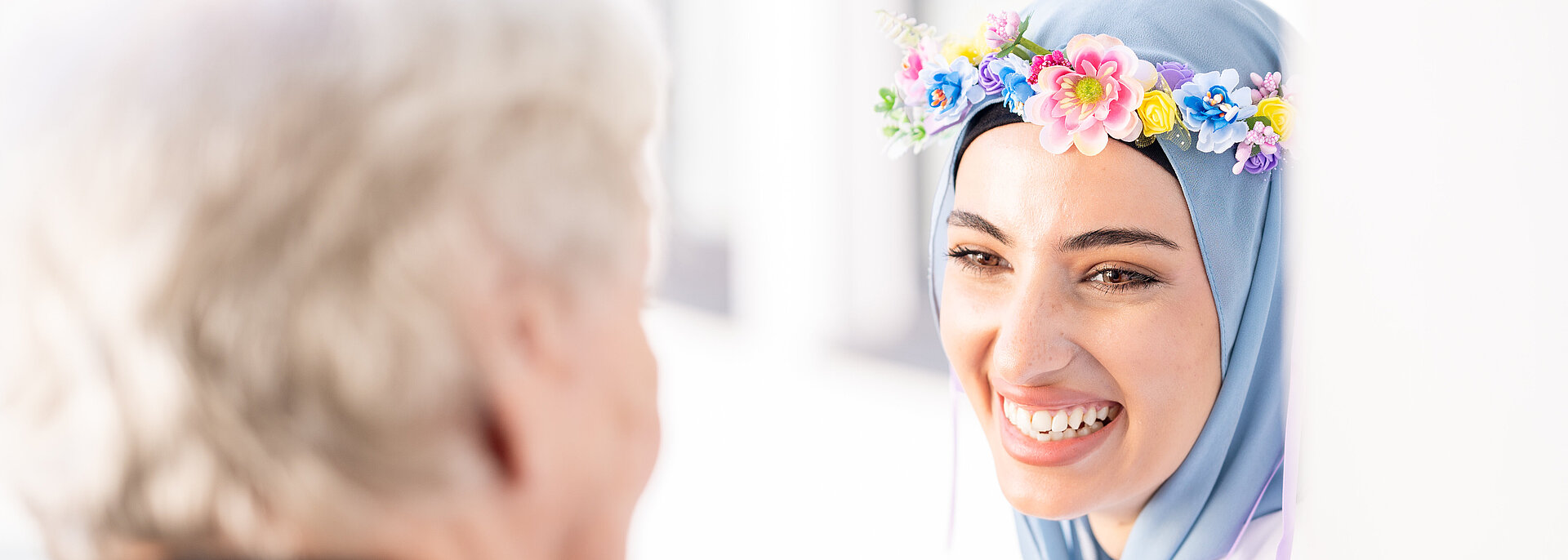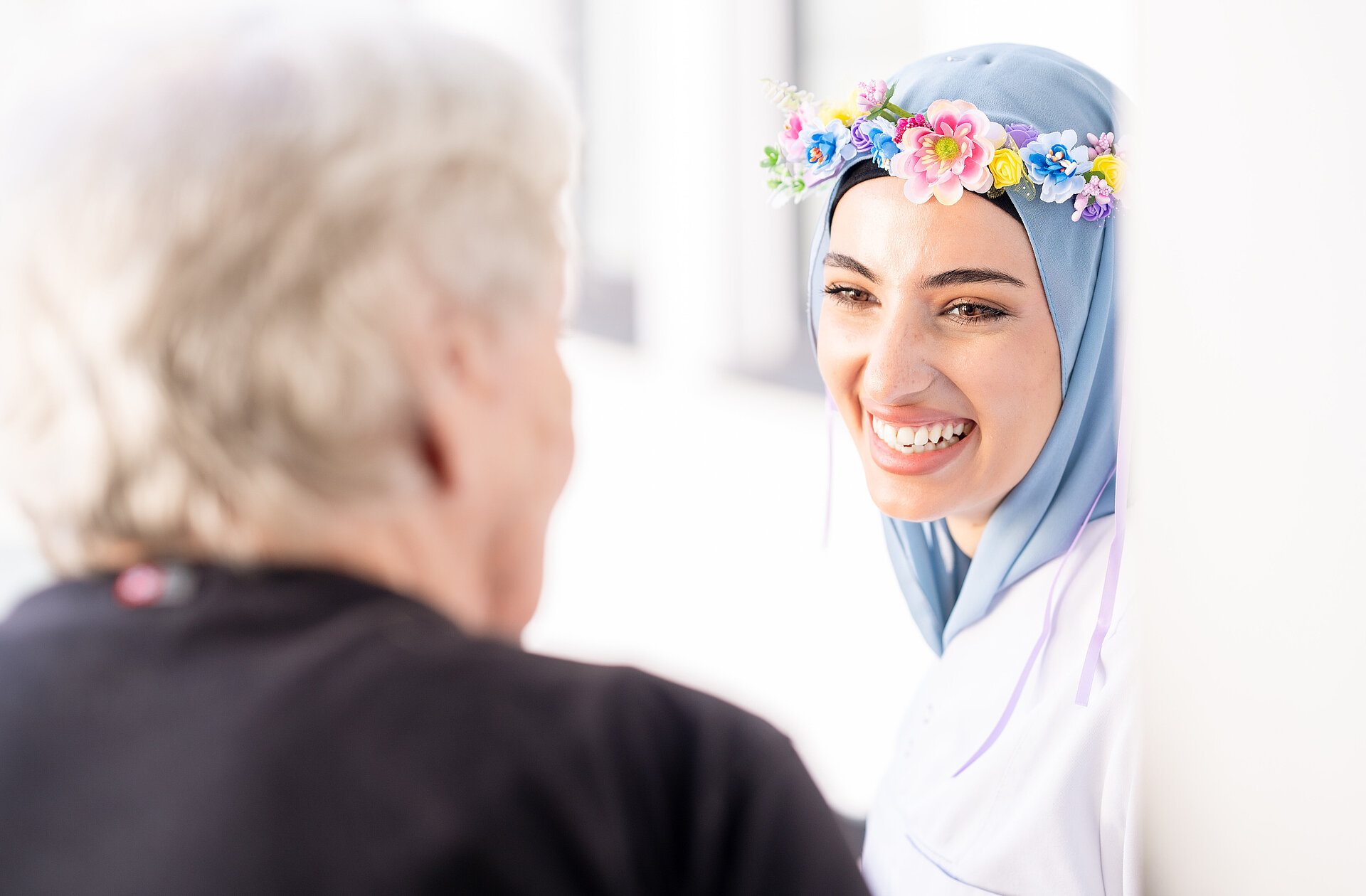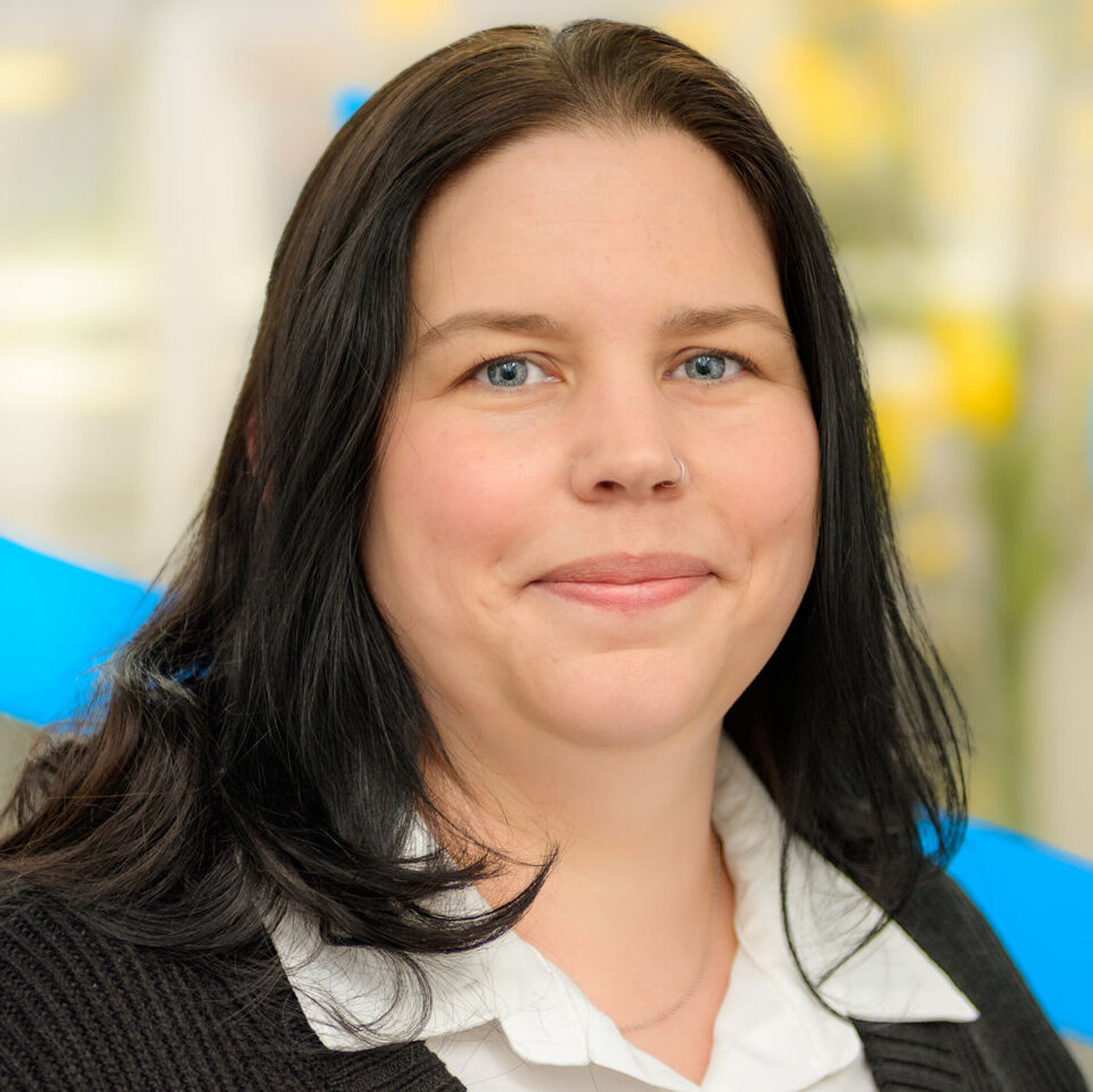

Professional training
What you should know about training to become a qualified and registered nurse
What do ‘stationär’ and ‘ambulant’ actually mean?
‘Stationär’ or ‘inpatient’ means that patients are cared for in a facility. As a nurse, you will have a permanent workplace, for example in a retirement home, hospital or in one of our dementia shared apartments. ‘Ambulant’ or ‘outpatient’ means that you care for patients at their home, in a doctor's office or in a day clinic.
Which suits you better? Would you like to get to know new places and people every day, or would you prefer to work in a fixed location?
Training allowance: How much will I earn during my training? Will I be able to live on it?
A lot has changed in the nursing sector in recent years. Thanks to the introduction of standardized collective wage agreements, training to become a nursing professional is now one of the best-paid training programs in Germany. This is only fair, given the responsibility involved in the job. Your training allowance will be
- approximately 1,340 € gross in the first year,
- approximately 1,400 € gross in the second year,
- approximately 1,500 € gross in the third year.
‘Brutto‘ or ‘Gross‘ means that social security contributions such as unemployment, health, pension, and nursing care insurance, which are shared between employers (Talpflege) and employees (trainees), are deducted from these amounts. The salary that is transferred to you (net salary) is therefore lower.
‘Tariflohn‘ or ‘Collective agreement wage‘ means that this is a fixed wage that employees in a particular industry receive. This wage is agreed upon in a collective agreement between employers and trade unions. The goal? Fair pay for all!
Everyday life and tasks: What activities are part of nursing care and what organisational tasks are involved?
During your three-year training programme, you will not only learn about nursing tasks at our facility, but also at various other nursing facilities, such as hospitals. At Talpflege, a typical working day begins with scheduling. Then you will travel with an experienced nurse or one of our practical instructors to the homes of our clients who require care.
You help people live as well as possible in their own homes. This includes assisting them with personal hygiene, going to the toilet or eating. You also provide important help with household chores and everyday tasks. As a care professional, you also take care of home nursing, such as administering medication or treating wounds.
An important part of your work is listening. Many elderly people feel lonely and are happy when someone has time for them. You don't need to be an entertainer – often it's enough just to be there and listen.
Are you open to people and do you like the idea of helping?
Of course, you will also get to know everyday life in our dementia shared apartments. We work in teams of nursing staff and care workers in the dementia care homes. While the nursing staff take care of nursing tasks, the care workers support the residents in maintaining their physical and mental abilities for as long as possible.
After each visit to our patients, we document all the tasks we have completed. If a patient suddenly takes a turn for the worse, you note this on your tablet. Sometimes it is even necessary to call an emergency doctor.
One thing is certain: nursing is never boring.
A typical day: What does a working day look like for us in outpatient care, for example?
The early shift starts at our care center with reading the handover on our smartphones and preparing for the “tour”:
- Keys to the patients' homes,
- Medication,
- Documents that may need to be signed,
- ...
Everything you need on the road is packed.
The nursing staff drive together with the trainees to the patients' homes and perform the requested services:
- Basic care,
- Assistance with personal hygiene,
- Blood sugar measurement and insulin administration,
- Medication administration,
- putting on compression stockings or applying compression bandages,
- dressing wounds,...
Once everyone has been cared for, it's back to the outpatient tour base for follow-up work:
- Preparing and ordering medication or wound care supplies,
- writing wound reports or care plans.
Throughout the day, you have helped many people, hopefully seen many grateful faces, experienced good moments with colleagues, and can now go home after an often exhausting but fulfilling day at work.
Career prospects: What further training is available? How does Talpflege support trainees?
Talpflege promotes training, further education and specialisation. The time required for this takes place within your working hours. The costs for the measures are covered by Talpflege. However, one requirement must be met: your next career step must fit in with the services offered by Talpflege. You can find more information here.
Our employees have already participated in a wide variety of courses, such as in the field of wound care.
Team and communication: How do we work with colleagues, doctors and other professionals? What makes good teamwork?
Everyone in the team has a job to do. Sometimes you help others or get help yourself. Communicating openly and friendly strengthens teamwork. When doctors or other professionals join us, it is important to be able to explain the patient's situation well.
Our team brings together a wide variety of nationalities. We are very proud of what our team achieves. That is why it is important to us that we treat each other with respect.
Dealing with patients: Are there many difficult patients?
Everyone has a bad day sometimes. This applies to our patients as well as our team. But don't worry: we won't leave you on your own, especially at the beginning. Over time, you will learn to build trust and deal with challenges such as bad moods, fears or dementia. And if you're having a bad day, there will always be a colleague there to listen to you.
Do you have any questions? Then send us an email or ask us openly during the interview. It is important to us to answer all your questions.
29.08.2025

Nadine Lohschelder
Ausbildungsleitung und Qualitätsmanagement
Talpflege GmbH
Trooststraße 15
42107 Wuppertal
+49 (0)202 261 57 27-103